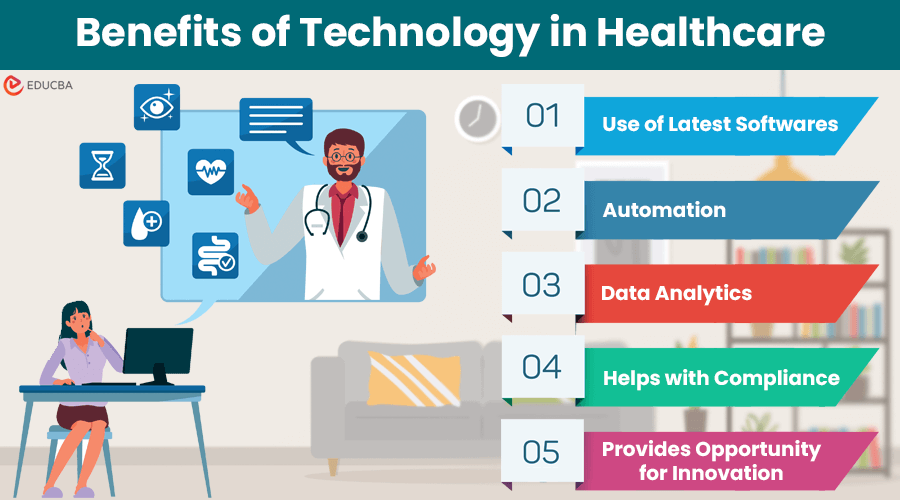Benefits of Technology in Healthcare – Introduction
The latest advanced technology is reshaping healthcare in areas such as cardiology billing, maintaining medical records, etc. The rise of digital solutions makes the healthcare sector more efficient and accurate. Embracing these advancements streamlines administrative tasks and ensures that patients receive timely and high-quality care. This article explores the various benefits of technology in healthcare.
Top Benefits of Technology in Healthcare
Here are some vital benefits of technology in healthcare:
1. Use of the Latest Softwares
Replacing outdated procedures with modern technology helps healthcare businesses strengthen their systems to fit their unique needs. For instance, specialized cardiology medical billing software ensures smoother and more accurate handling of patient records and billing codes. These systems quickly adjust to regulatory updates and reduce errors. This means faster claims processing and fewer denials, making operations more efficient.
2. Automation
Automation is redefining how healthcare systems handle various time-intensive tasks. For instance, they can verify if insurance claims are good to go by automating insurance checks and error detection. This newfound efficiency redeems time for more complex, value-added work.
Consequently, medical finance teams can move from handling routine data entry to focusing on more complex issues that require human judgment. Automation doesn’t just cut costs; it reshapes roles, enabling staff to engage in deeper analysis and strategic planning.
3. Data Analytics
Working in the healthcare finance field is not just about capturing data but transforming it into actionable insights. Thus, with real-time analytics, medical departments can monitor and react swiftly to financial indicators, spotlighting areas ripe for improvement. These analytical tools forecast with clarity, allowing practices to make informed decisions on which services are worth investing in.
4. Helps with Compliance
The dynamic landscape of healthcare regulations requires careful compliance. In such a case, technology can be very useful. Enhanced tech platforms offer quick updates to reflect current laws and defend against non-compliance risks. Automated systems create detailed records of every action, making accountability a built-in feature. This precision helps handle audits confidently, with transparent records showing their compliance with billing regulations.
5. Provides Opportunity for Innovation
Today, in healthcare, adopting new software solutions is no mere trend. It’s essential for streamlining operations and enhancing service delivery without raising costs too much. This strategic integration allows healthcare firms to explore various innovative ideas, giving them a competitive edge. For instance, cardiology practices that embrace technological change position themselves at the forefront of growth and innovation.
Final Thoughts
Among several benefits of technology in healthcare, one is that the human element remains irreplaceable in healthcare finance. While technology helps, it only supports and does not replace the expertise and empathy of finance professionals. Thanks to technology handling routine work, these experts can now focus on important tasks like decision-making and personalized patient interactions.
Recommended Articles
We hope this article on “Benefits of Technology in Healthcare” was helpful to you. You can also refer to the articles below to learn more.




